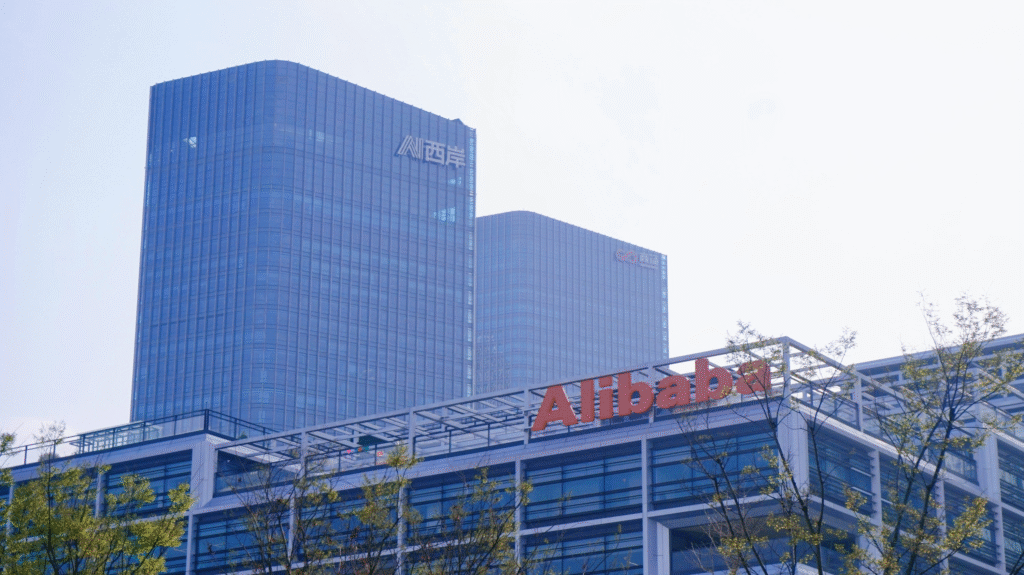Alibaba, the well-known Chinese e-commerce company, has taken another big step in expanding its technology presence in the Middle East. Its cloud division, Alibaba Cloud, has launched a second data centre in Dubai, nine years after opening the first one. This move shows how the company is working hard to strengthen its position in the global cloud computing market and meet the increasing demand for advanced digital services.
The new data centre is part of Alibaba’s large-scale plan to invest 380 billion yuan (about 53 billion U.S. dollars) over the next three years in cloud computing and artificial intelligence. This plan reflects the company’s belief that technology, especially AI, will shape the future of global industries and economies. Alibaba did not share specific financial details about the Dubai project, but the launch clearly fits into its broader strategy of international growth.
Alibaba Cloud, often called the “brain” behind Alibaba’s digital ecosystem, provides cloud-based tools and services that help businesses run more efficiently, use data more effectively, and develop AI-driven solutions. By building more data centres around the world, Alibaba aims to give customers faster access to its technology while ensuring that data is stored closer to where it is needed. The new centre in Dubai will help companies in the Middle East improve their digital infrastructure and adopt advanced technologies more easily.
Eric Wan, the Vice President of Alibaba Cloud International and Regional General Manager at Alibaba Cloud Intelligence, explained why the Middle East is so important for the company’s global plans. He said, “The Middle East’s advantageous position in fast-tracking AI adoption and its collaborative ecosystem are crucial enablers for private and public sector companies to thrive.” His statement highlights how the region’s governments and businesses are open to embracing AI and innovation, making it a promising market for cloud technology.

The United Arab Emirates (UAE), where Dubai is located, has been making strong efforts to become a global leader in artificial intelligence. The country, known for its oil wealth, is now heavily investing in digital transformation. The UAE government has been spending billions of dollars on AI-related projects and is working with leading technology companies from around the world. In May, the UAE announced an ambitious plan to build the largest AI campus outside the United States. This project, created in partnership with technology giants like Nvidia and OpenAI, is expected to make the UAE a central hub for AI research and innovation.
This move is also part of the UAE’s broader goal to balance its global relationships. On one hand, it maintains a close partnership with the United States, its traditional ally. On the other hand, China is the UAE’s largest trading partner, and the two nations continue to expand their economic cooperation. However, this growing closeness has attracted attention from Washington. Reports have suggested that the U.S. government is concerned about potential risks related to China’s access to advanced technology through third-party countries such as the UAE.
Reuters earlier reported that, due to U.S. security concerns, some aspects of the UAE’s deal to develop the AI campus have not been fully finalised. The concerns mainly revolve around the fear that advanced semiconductor technology could indirectly reach China through partnerships in the region. Despite these challenges, both the UAE and China continue to push forward with their technology collaborations, driven by their shared interest in innovation and economic diversification.
Alibaba’s expansion in Dubai fits neatly into this picture. By opening a new data centre, the company is showing that it sees the Middle East as more than just a customer base—it’s a key player in the global digital transformation. With Dubai’s strong infrastructure, business-friendly policies, and growing interest in technology, the region offers great opportunities for companies like Alibaba Cloud to grow.
The new data centre will not only help businesses store and manage data more securely but will also boost their ability to use AI in daily operations. From banks and retailers to energy companies and government departments, many organisations in the region are eager to use digital tools to improve performance and efficiency. Having a local data centre will make it easier for these companies to use Alibaba’s services without worrying about slow connections or data security issues.
During Dubai’s famous technology event, GITEX Global, Alibaba Cloud also announced new partnerships with several regional companies. One notable partner is Wio Bank, a digital lender backed by Abu Dhabi. Together, they plan to use Alibaba’s cloud infrastructure to speed up the development and deployment of AI-based financial solutions. Collaborations like this show how global and regional companies are working hand-in-hand to create smarter and more connected systems.
Alibaba’s commitment to the region also demonstrates its long-term confidence in the Middle East’s growing digital economy. The company’s global investments in cloud and AI technology are not just about competing with other tech giants like Amazon Web Services or Microsoft Azure—they are also about helping businesses of all sizes transition into the digital age. For the Middle East, this means more opportunities to access world-class technology, train skilled professionals, and build stronger economies powered by data and innovation.
The rise of AI and cloud computing is transforming the way the world operates. From education to healthcare, and from finance to manufacturing, every industry now depends on data and digital tools to make smarter decisions. By expanding its cloud network in Dubai, Alibaba is not only increasing its global reach but also contributing to the region’s vision of becoming a leader in technology and innovation.
In conclusion, Alibaba’s decision to open its second data centre in Dubai marks an important milestone in the company’s international journey. It reflects the growing bond between China and the Middle East in the field of technology and highlights the UAE’s role as a fast-emerging digital hub. As the world continues to move towards AI-driven solutions, collaborations like these will shape how nations and companies work together in the future.


